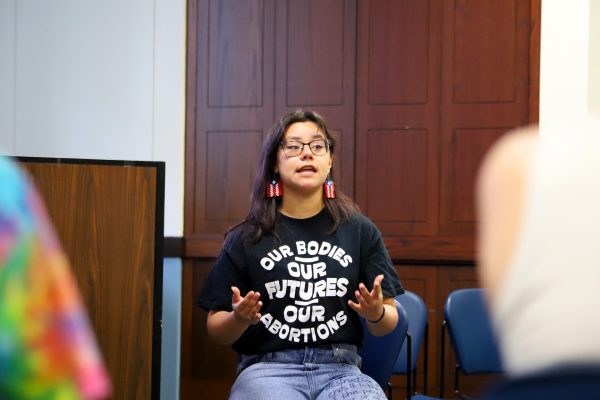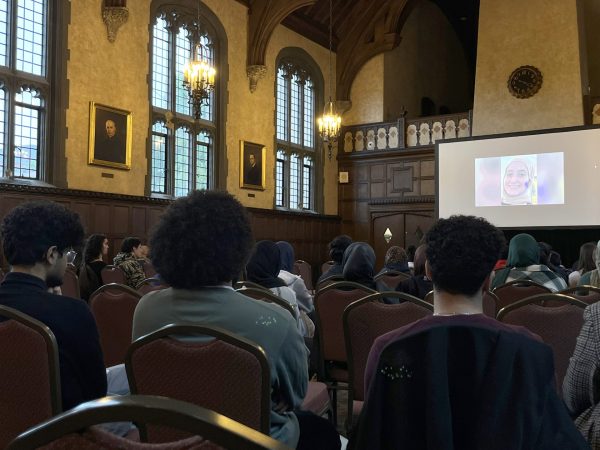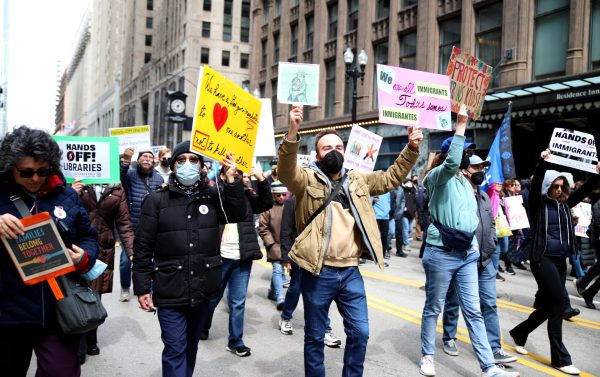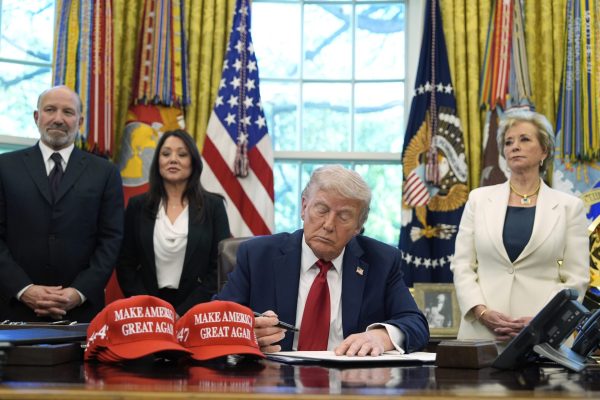Faculty council vetoes proposed consensual relationship policy
Major Chicago universities such as the University of Chicago and Northwestern University both have explicit policies dictating relationships between faculty and students, but DePaul does not.
After a presentation from Title IX on the #MeToo Movement, DePaul’s Human Resources department is looking to change that with the proposed Consensual Relationship policy.
DePaul’s Faculty Council, the governing body that works to involve faculty participation in creating university policies, met on Wednesday to hear the proposed policy and voice their thoughts.
Members had a variety of concerns, with most expressing worry that the language is not clear enough to properly enforce. Some also raised issues with the self-reporting aspect of the policy, asking how that would affect those who don’t feel comfortable coming forward about their relationship.
After the allotted 30 minutes of discussion, the Faculty Council unanimously voted to postpone the vote until their next meeting on June 6, and they agreed not to pass the policy as it is currently written. Bamshad Mobasher, Faculty Council President, asked for a revision of the policy that addresses the council’s concerns by then.
Stephanie Smith, Vice President for Human Resources at DePaul, said they can work on that. The policy was drafted by Human Resources in collaboration with other offices such as the Office of Institutional Diversity and Equity, according to DePaul spokeswoman Carol Hughes.
The policy would prohibit “undisclosed consensual relationships” between individuals at the university where there exists a managerial or supervisory role. This would include a faculty or staff member and a student “whom that faculty or staff member teaches, manages, supervises, advises, or evaluates in any way,” according to the proposed policy.
It would also include coaches, student athletes and student employees who have managerial positions over other student employees. Smith emphasized that verbs such as “advising, mentoring, evaluating and supervising” would be key in determining whether or not the relationship need be disclosed.
The proposed policy is self-reporting, meaning that two people in any of these positions with a consensual relationship are expected to disclose it to the university. Smith said that the person of “higher standing” would be expected to report, but that HR would still need to verify with the other person in the relationship; no one would be anonymous.
Some faculty council representatives expressed worries that the proposed policy would require revealing their sexual orientation, which could lead to potential issues of discrimination.
Ultimately, faculty wanted to see more explicit wording that protects the reporting couple — whether because of sexual orientation or power dynamics.
They wanted to see language that would ensure protection of the person in lower standing with the university, as the person of higher standing would be expected to first report the relationship.
The council also had concerns as to how reporting would work if a consensual relationship were to end.
Peg Birmingham, a College of Liberal Arts and Social Sciences Faculty Representative on the council and a professor in the philosophy department, was among the first to raise concerns with the wording of the proposed policy.
She inquired as to whether or not it would include professors and former students, worrying that the power dynamic could still remain unbalanced even if the student is not currently in a class with that professor. Advising and mentoring relationships continue beyond the classroom, she explained.
In April, The DePaulia published an investigation about a former student’s lawsuit against a former professor for alleged sexual coercion, battery and violations of the Illinois Gender Violence Act.
Neither are involved with the university anymore, and the events allegedly occurred while the student was currently enrolled in a class with the professor during the spring 2016 quarter.
The lawsuit raised questions about relationships between students and professors, and the investigation found that no explicit policies regulate dating or sexual relationships between faculty and students.
The proposed Consensual Relationship Policy was prompted by the #MeToo Movement, according to Smith, who presented the policy at Wednesday’s meeting. She said the idea is to develop a mitigation plan to avoid any future “adverse effects.” Smith said “consensual relationships go awry,” so this proposed policy would provide documentation “down the road” if the university was faced with harassment claims.
According to Smith, HR looked at other institutions such as Loyola and Northwestern and found that “DePaul had one of the lightest policy treatments out there” concerning consensual relationships.
Previously, DePaul addressed consensual relations in a smaller section of the Anti-Discrimination and Anti-Harassment policy, according to Hughes. But Smith said at Wednesday’s meeting that the university still needs an explicit policy to address issues around sexual harassment and relationships that could affect discrimination.
Preliminary discussions and comparative research on similar policies from other universities began in the fall, and a draft of the proposed policy began at the end of 2017, according to Hughes.
Since then, the policy has been working its way through the DePaul governance process, which includes the Staff Council, the Faculty Council and others.
“The policy could be implemented before the end of the academic year, but that is contingent on approvals as it continues through the governance process,” Hughes said.







